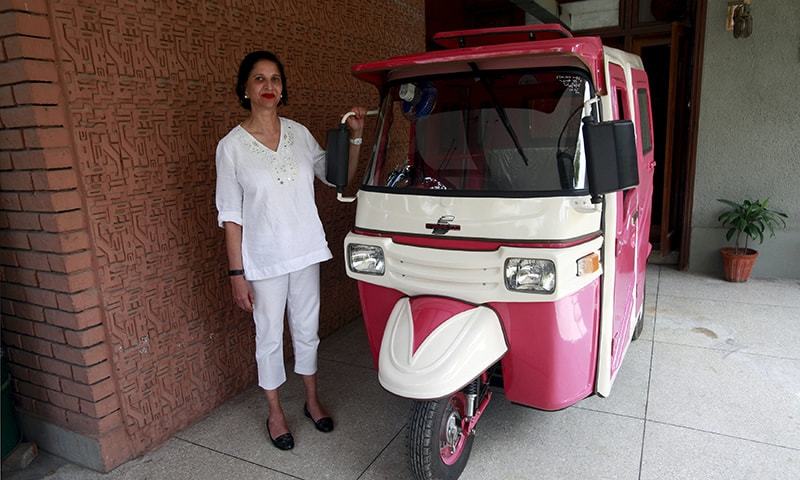A unique initiative called ‘Zeenat Gaari has been launched in the city of Lahore to help empower underprivileged women.
Many women have been provided customised rickshaws (Zeenat Gaari) to help them start their own service. In addition, 10 women have been raised as general store owners.
Seed out, an NGO, in collaboration with the Coca Cola Company, launched the project at the Expo Centre earlier yesterday. Rickshaws and general store items were distributed among the women selected through the programme.
In our society where general stores are mostly run by men and rickshaws driven by male drivers, the project hopes to help the confident, determined women entrepreneurs eke out a living in a dignified way.
To ensure the safety of women and making the experience comfortable for them, the Zeenat Gaari has been carefully designed with features such as security gadgets, wifi and fans. To make them fit for a woman to drive, the rickshaws have also been made aesthetically pleasing by painting them cream and red.
The NGO, which has been working to alleviate poverty by raising micro entrepreneurs, felt it was about time they broke women stereotypes such as ‘women should not/or cannot work’.
While elaborating on the project, Zain Ashraf Mughal, the founder and president of the NGO, said: “This will revolutionize the concept of local transportation in Pakistan especially for women travelers and school going girls.” He added that “Seed Out is not only making these women independent rickshaw drivers but also providing them an income source they can earn with respect and dignity as well as ensuring they learn the right skills required through capacity building programmes.”
During the event, a documentary prepared by the beverage company, which offered a glimpse into the private lives of the entrepreneurs, clips from their training sessions with the NGO on how to drive the rickshaw and visit to the Super Asia factory to learn the mechanisms of the rickshaw, was shown. It visually captured the expressions and body language of the15 women entrepreneurs while simultaneously encapsulating the positive change it brought to their lives by giving them the freedom to run their own businesses.
The powerful documentary was followed by a distribution ceremony, where the rickshaws and general store items were formally handed over to the women entrepreneurs. As a way to show solidarity with the issue at hand, the women wore steel grey and red uniform and white duppata and added a pleasant feel to the evening.






